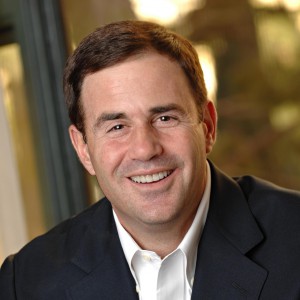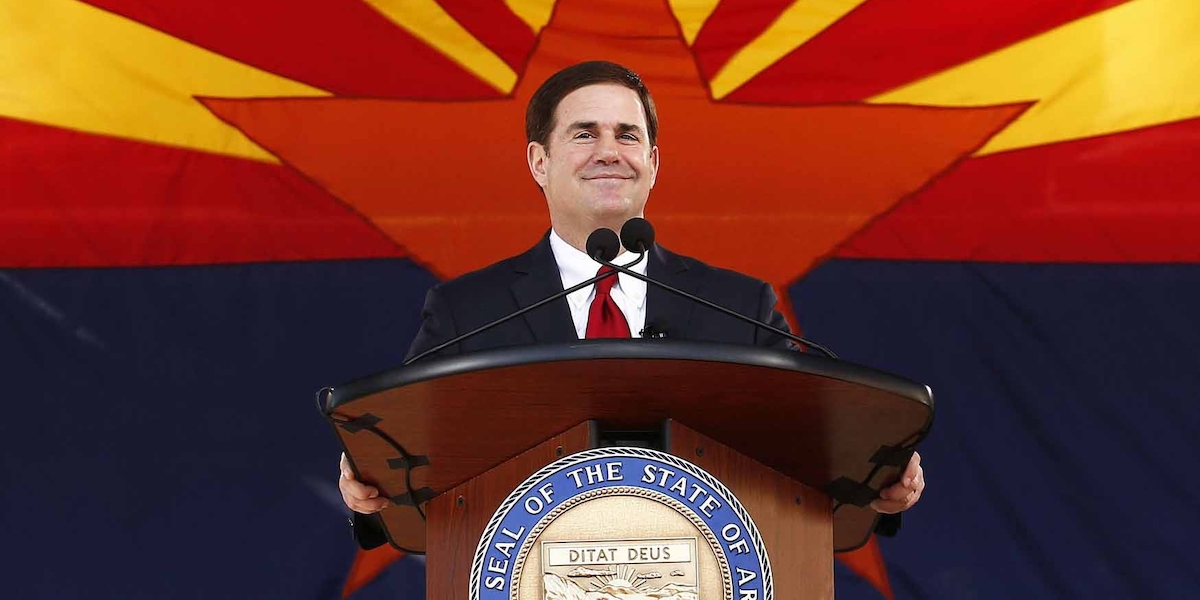
Washington, D.C., March 27 –Nationally 111,804 jobs were gained by people with disabilities, 5,760 of which went to Arizonans with disabilities. The newly published 2018 Annual Disability Statistics Compendium shows there are 428,198 working-age (ages 18-64) people with disabilities living in Arizona. Out of that number, only 156,194 have jobs. That means the Grand Canyon State has a 36.5 percent disability employment rate. Further analysis by the nonpartisan advocacy group RespectAbility shows that Arizona ranks 34th out of the 50 states for disability employment. Not only that, this past year’s job gains among people with disabilities is part of a trend that began back in 2016.
Gov. Doug Ducey previously has spoken about the critical importance of pushing for more inclusive workplaces across all sectors of Arizona’s economy. “Arizona workplaces welcoming of the talents of all residents including individuals with disabilities, are part of a critical parts of our efforts to encourage a diverse community and rigorous economy,” wrote Gov. Ducey in a proclamation released for National Disability Employment Awareness Month last October. “Arizona prospers when an integrated workforce includes people with and without disabilities working side by side earning competitive wages and benefits. Businesses and organizations that hire, retain, and promote people with disabilities continue to discover that a strong workforce is an inclusive workforce. The perspective and creativity of people with disabilities benefit employers who acknowledge each person’s unique strengths and talents.”
Hon. Steve Bartlett, current Chairman of RespectAbility, who co-authored the Americans with Disabilities Act when in Congress, echoes Gov. Ducey’s sentiments. “Our nation was founded on the principle that anyone who works hard should be able to get ahead in life,” he said. “People with disabilities deserve the opportunity to earn an income and achieve independence, just like anyone else.”
A National Issue
Beyond Arizona, how is the workforce changing for people with disabilities? What is driving these changes? The answer is simple. According to Vincenzo Piscopo of the Coca-Cola Company: “People with disabilities bring a unique skill set that it is very valuable for companies.” He went on to add, “As it relates to employment and competitiveness in the workplace, we have to stop thinking of disability as a liability and start thinking of it as an asset.”
Brand-name companies such as JP Morgan Chase, Coca-Cola, Ernst & Young, IBM, Walgreen’s, Starbucks, CVS and Microsoft show people with disabilities are successful employees. These companies also know that these workers improve the bottom line. “People with disabilities bring unique characteristics and talents to the workplace,” said RespectAbility President Jennifer Laszlo Mizrahi. “Hiring people with disabilities is a win-win-win for employers, people with disabilities and consumers alike.”
As more companies hire employees with disabilities, conversations are shifting to focus on inclusion. “Disability inclusion is no longer about automatic doors, curb cuts, ramps, and legislation,” says Jim Sinocchi, Head of the Office of Disability Inclusion at JP Morgan Chase. “Today, the new era of disability inclusion is about “assimilation” – hiring professionals with disabilities into the robust culture of the firm.”
According to the Census Bureau, there are more than 56 million Americans living with a disability. Disabilities include visible conditions such as spinal cord injuries, visual impairments or hearing loss and invisible disabilities such as learning disabilities, mental health or Autism.
An Election Issue
Voter research, conducted by RespectAbility, shows how disability issues connect to all aspects of American life. “Fully three-quarters of likely voters either have a disability themselves or have a family member or a close friend with disabilities,” said former Representative and Dallas Mayor Steve Bartlett. “People with disabilities are politically active swing voters, and candidates should take note of the important issues they care about.”
As 2019 moves into 2020 and the political campaign season heats up, continuing job growth for people with disabilities will be a crucial indicator of the health of the American economy.

Be First to Comment